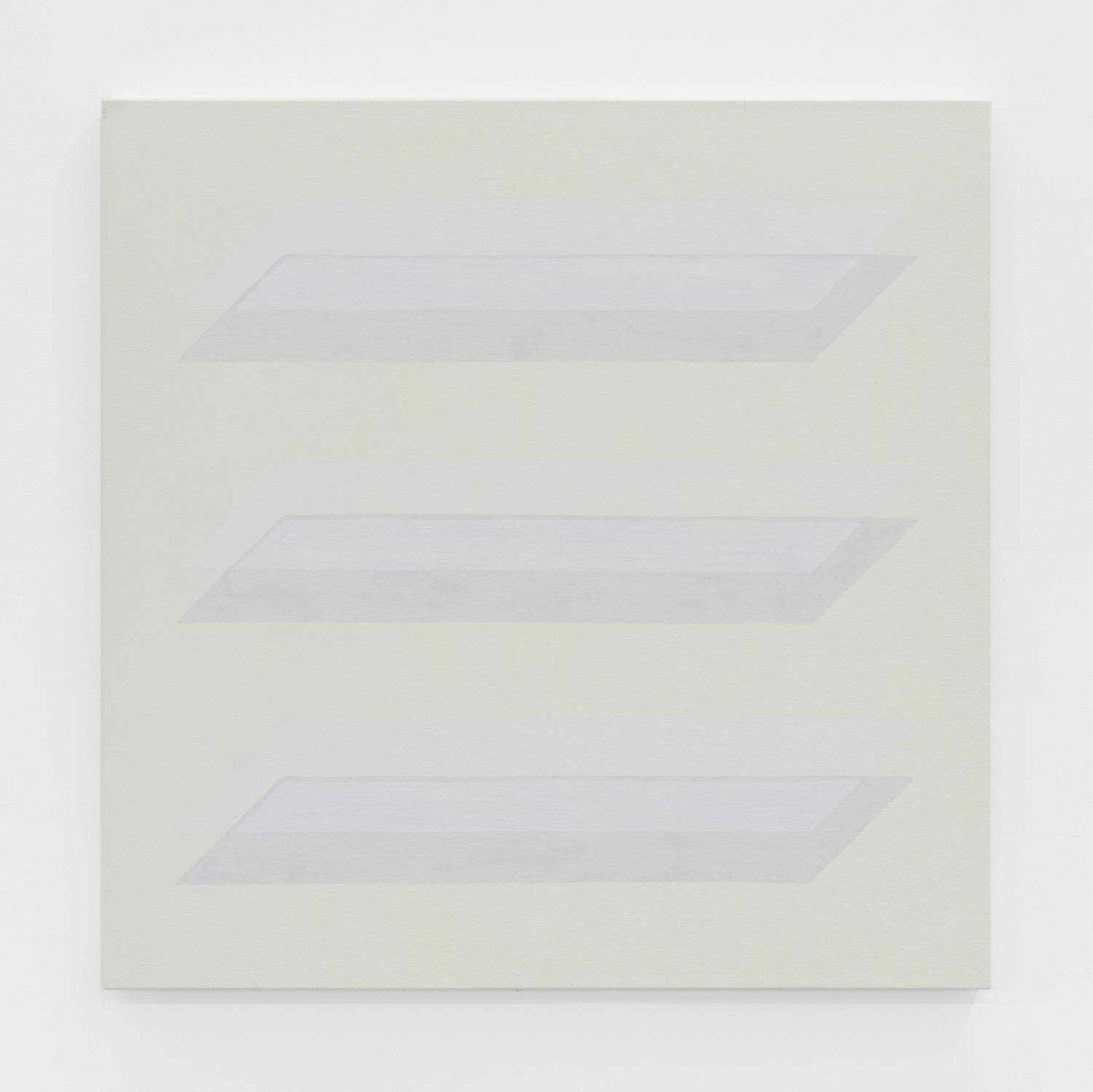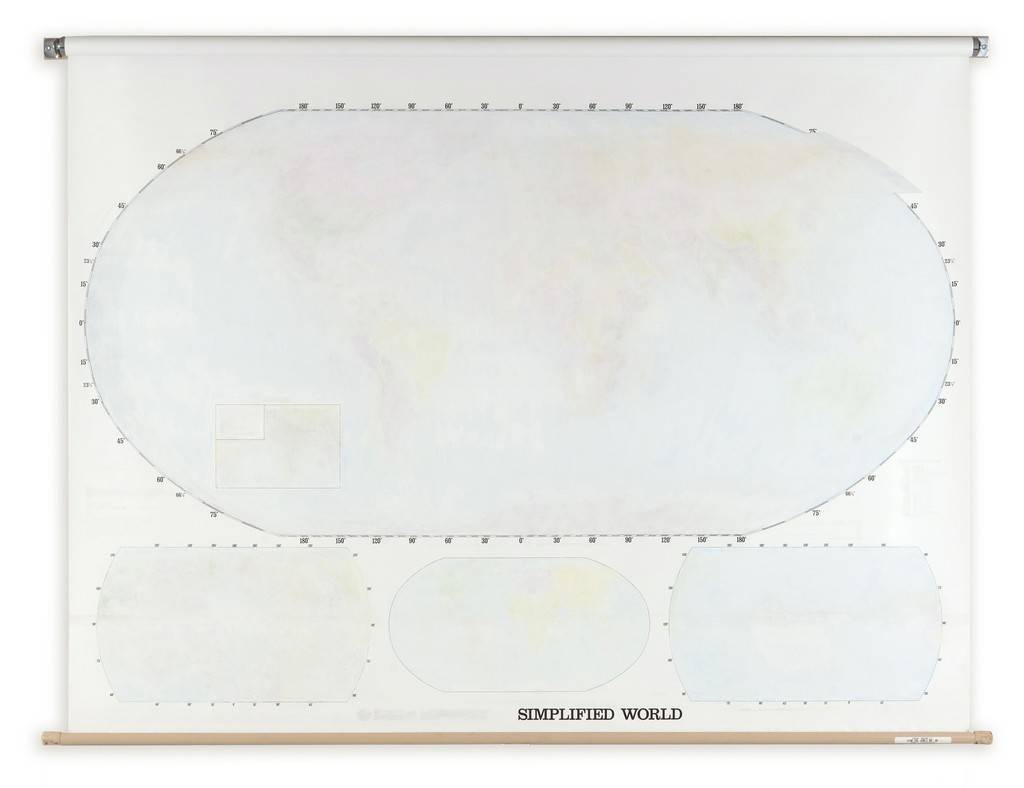The Interoperability #1: Policymaking is worldbuilding

We have started work on our new Shared Digital Europe report, on the theme of interoperability. This is a project we’re doing with the same core team of Sophie Bloemen, Paul Keller and Alek Tarkowski.
We decided to start writing personal in-progress notes for this project, largely inspired by the diaries of Robin Sloan and the ethos of the republic of the newsletters.
This is the first note, written by Alek, two weeks into our first research sprint. Thanks for subscribing!
 Edith Baumann, Pattern Recognition #23 (2018), source: Collecteurs.
Edith Baumann, Pattern Recognition #23 (2018), source: Collecteurs.
Why interoperability?
It's a highly technical term that helps discussing characteristics of data and content flows. It's also a term that gained quite a lot of traction in the last year - many people see interoperability as one of best options for solving the problem of dominant online platforms.
Our entry point is slightly different. To be honest, after taking part in a range of debates about platform interoperability it is no longer clear to me that interoperability is the right solution for problems that we have with big platforms. Right now, it's a regulatory slogan that is often thrown around in debates. But no one has yet provided rigorous evidence that it will work.
So we do not think of interoperability as a fix for the internet. We want to approach it as a founding principle for an ecosystem, that does not have to deal with the issue of market dominance. Interoperability is for us a crucial element of an alternative ecosystem that is being built by public and civic actors.
The Interoperable Public-Civic Ecosystem
IPCE, that's the acronym that stuck to us as we launched our projects. Most projects I work with end up with really banal code names. I always envied the (long now gone) Berg for their funky project code names. Yet the projects I take part in usually end up being named after the funding source (raise your hand if this has happened to you as well). Or we use the term that at the beginning seems the best candidate for a core term, around which we can structure our thinking.
It makes of course sense to stick to a name, as this gives a project a sense of stability among all the weirds things that make a project often feel like a boat rocking on waves. But this creates the risk of sticking to the first, yet unpolished and sometime haphazardly chosen metaphor.
I'm actually quite happy with how things worked out for our previous project. We called it "Reframe Digital Europe" and it explained very well what we were up to: finding an alternative policy frame for European digital policymaking. Once we found it, we renamed the project to what it's called now: shared-digital.eu/.
So IPCE sounds like some specialized agenda of some international body. Maybe a pretty cool one, like something that deals with regulating outer space or investigates container ship fraud. But still, an acronym! Feels technocratic and explains very little.
I feel that we might want to quickly change it, before we get too attached.
Introducing the Interoperable Sphere
I've listened this week to a talk between Eric Weinstein and Tyler Cowen, where at some point in their intellectually rambling conversation they start talking about the internet and platform regulation. And Weinstein makes the remark that online there is no equivalent of public space - there are myriad spaces, but all are private in character.
About a month ago, when this study was confirmed and we were fleshing out its details, we realized that the public space is for us a crucial concept. That it's the end, to which interoperability might be just the means. We need to have the public sphere in focus if we want interoperability to work with to be more than just a tool for breaking dominant platforms.
And at that moment it struck me, that this means that public space has to emerge out of the relationship between private spaces. Not another space among them, but something that takes them to another level. And interoperability, our current hypothesis goes, is precisely what shifts this sum of private spaces to a greater whole, the public space.
And therefore it makes sense to talk about the Interoperable Sphere. The InterSphere.
Policymaking is worldbuilding
My spellchecker tried to replace "worldbuilding" with "world building". I guess this means you might not know the term. It's geeky and mainly applied to all forms of fantasy and SF.
 Agustina Woodgate, Simplified World (2014), source: Collecteurs.
Agustina Woodgate, Simplified World (2014), source: Collecteurs.
The term describes the task of designing a world, in which the story will be located. Those into worldbuilding draw maps and genealogical trees, design fantastic languages and recipes, so that the story they tell is complete. I reminded myself of the term while catching up on Robin Sloan's current diary - where he documents, in weekly installments, the development of his new game, Perils of the Overworld.
Sloan is actually against hardcore worldbuilding and believes that "the words are all there is". That you can conjure a whole world in one sentence, if you craft it properly. And the reader or viewer will fill in all the gaps. Whatever your preferred take on worldbuilding is, my point is that it is directly applicable to policy making. When you shape and enforce policies, your shaping a new world, a new reality.
Sometimes it is done through heavy worldbuilding, with all the details figured out and all the evidence properly provided. Sometimes it's the equivalent of a single sentence and all the empty spaces around it - like with the infamous article 17 of the new Copyright Directive, where a new regulatory reality for the platform environment was caged in just several rough sentences.
My point is, policies are not dry stuff that technocrats and lawyers work with. They are tools with which we can shape reality. A year ago in the "State of the World" address, Bruce Sterling said something that stuck deeply in my mind - he said that in the Emirates, they solve problems with hardware. And that's in general what technologies and their owners do with us. Technological change is often a victory of technical prowess over social agreement.
Policymaking, the crafting of reality through strategic documents, is in this context a deeply humanistic thing. If you try to build worlds with policies, there's a high chance you believe that social norms and contracts, and democratic oversight, can trump technologies.
And that's ultimately why I am into policies. Of course, there is much policymaking that's about lawyers and technocrats working with acronyms. Not much worldbuilding there. But if all goes well, and you set your goals right and framing right, this does feel like building worlds. That's why I always liked the concept of policy design - the word "design" made it feel like something that lawyers cannot lay their hands on. It's about policies being built not as laws but arrangements of society.
What's next?
We're at an initial stage of exploring our concept. Looking around, at what others have written about interoperability. Mapping the landscape. So there might be a map in the next installment. If you follow Robin's (highly recommended) diary you'll quickly learn that there is no worldbuilding without a map.
* * *
To illustrate this newsletter, I'm using contemporary artworks from the Collecteurs collection. Collecteurs is a "Collective Museum of Private Collections" - a fabulous project with the mission to provide public access to privately held artworks.
At the Communia Association, we have a tradition of illustrating our articles with public domain artworks. Our coverage of the IPR battles therefore has a very retro, quaint feel. For this project, it felt right to aim for the cutting edge of contemporary art.